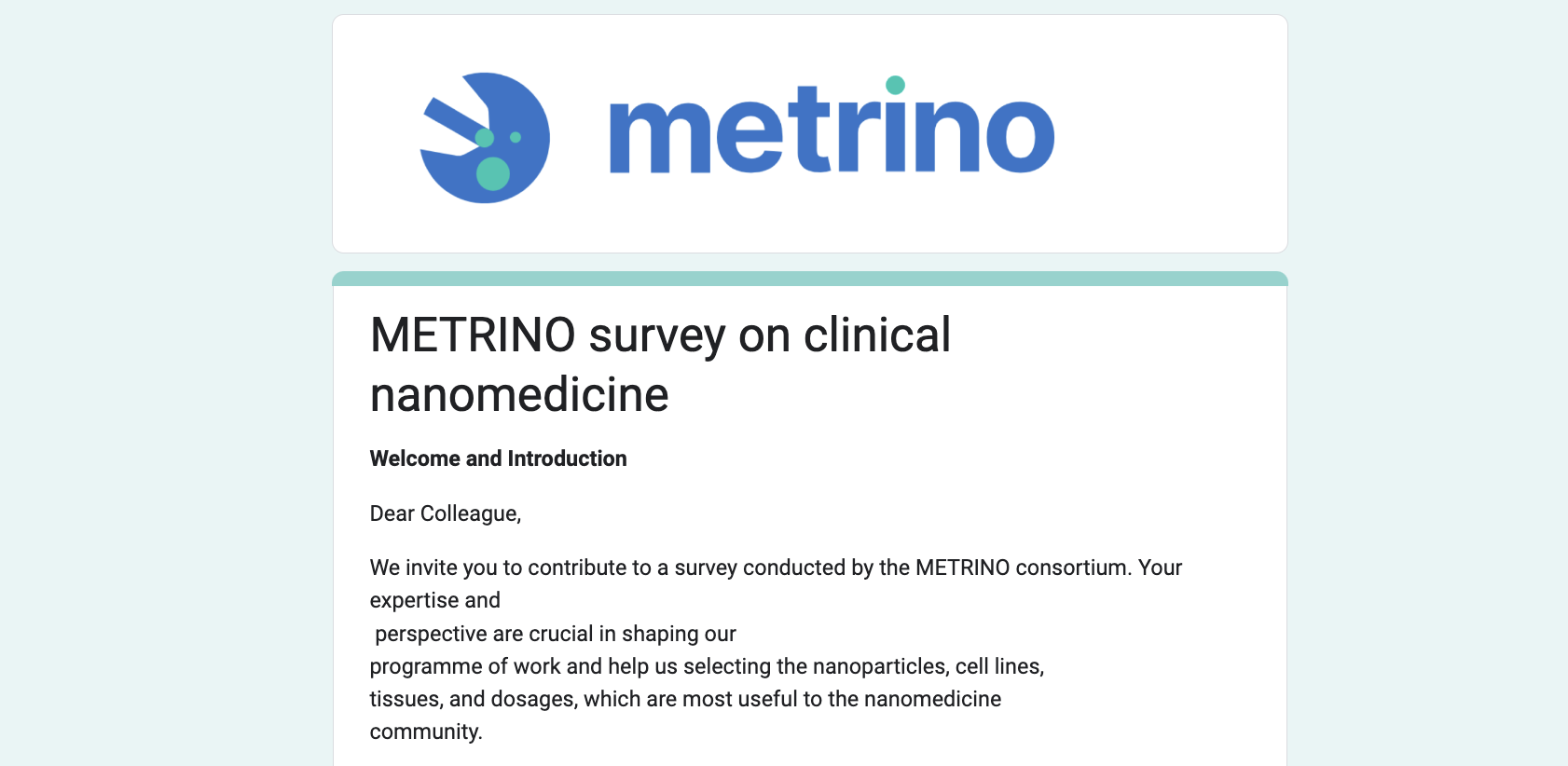News
Join the METRINO Survey: Your Expertise Can Transform Clinical Nanomedicine!

Shaping the Future of Nanomedicine Metrology Together.
Dear Colleagues and Nanomedicine Enthusiasts,
We are excited to announce the launch of the METRINO Survey on Clinical Nanomedicine, following the success of our initial survey focused on Reference Materials and standard test methods in nanomedicine. This new survey specifically targets the realm of clinical nanomedicine, and we need your vital insights.
Why Your Participation is Crucial
Your unique expertise as clinicians, scientists, and professionals involved in ADME, biodistribution, and pharmacokinetic studies of nanomedicine is pivotal. The insights from your frontline experiences in working with formulations such as liposomes, metal oxides, and lipid-based nanoparticles for RNA delivery will guide the METRINO project in selecting the most relevant nanoparticles, cell lines, tissues, and dosages. This survey is a direct channel for you to influence the future actions of the European Metrology community and contribute to a field that has the potential to revolutionize patient outcomes.
What’s in the METRINO survey?
In this survey, we explore several critical areas, and you can answer to all or only some of these improtant topics:
- Experience with Nanoparticles: Understanding your work with various nanoparticle types and your interests in future explorations.
- Applications and Biological Targets: Gathering insights into the application contexts for nanoparticles, including diagnostic imaging, cancer therapy, gene therapy, and more, along with the administration routes you have experience with.
- ADME Studies and Tissue Phantoms: Inquiring about effective ADME studies, including the lowest necessary concentration of nanoparticles, dosing ranges, and the importance of various tissues in vivo.
- Methodological Gaps and Storage Stability: Identifying gaps in current studies and the desired stability for sample storage.
Take the Survey Now: METRINO Survey on Clinical Nanomedicine
Confidentiality Assurance
Your responses are confidential and will be used exclusively within the METRINO project. We respect your privacy and guarantee no disclosure of your information without explicit consent.
Connect with Us
For any questions or additional information, feel free to contact us:
- ETPN Secretariat: secretariat@etp-nanomedicine.eu
- WG Leader Leonardo Mortati: l.mortati@inrim.it
Your time and expertise are highly valued, and we thank you in advance for your contribution to this significant endeavor.
Together, we can drive innovation and enhance patient care in the field of nanomedicine.
Warm regards,
The METRINO Team